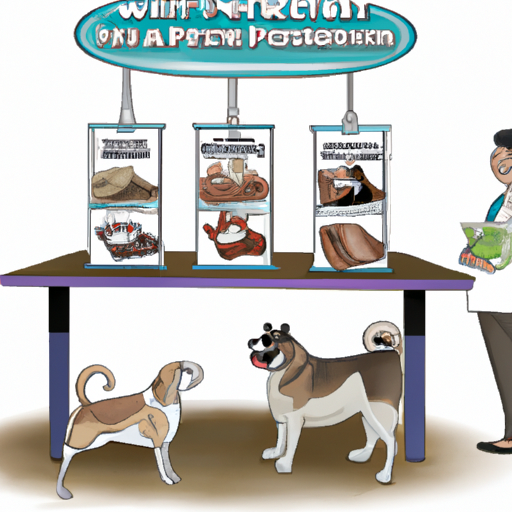Understanding Your Dog’s Ideal Weight
First and foremost, it’s crucial to understand your furry friend’s ideal weight. Different breeds have varying weight ranges, and factors such as age, sex, and physical activity level can impact a dog’s ideal weight. It’s not about the pounds, but about the body condition. You should be able to feel your dog’s ribs, but they shouldn’t be visible. If they are, that could be a sign your dog needs to gain some weight.
Assessing Your Dog’s Health
Before making any changes to your dog’s diet or lifestyle, it’s essential to have a thorough health assessment done by a vet. Rapid weight loss or the inability to gain weight can indicate underlying health issues such as:
- Digestive Problems
- Dental Issues
- Parasites
- Diabetes
- Cancer
Your vet can perform necessary tests and give you a comprehensive understanding of your dog’s health, helping you rule out any medical causes of underweight.
Optimize the Diet
Once you’ve ensured your pooch is healthy, the next step is to evaluate and optimize their diet. High-quality food is key. Here’s a quick table to help you understand the basic dietary needs of dogs:
| Nutrient | Importance |
|---|---|
| Protein | Essential for growth and muscle development |
| Fats | Provide energy and help in nutrient absorption |
| Carbohydrates | Provide energy and keep the digestive system healthy |
| Vitamins & Minerals | Required for various bodily functions |
Remember, increasing the quantity of food isn’t always the solution. Instead, focus on the quality and nutritional balance.
Increase Physical Activity
While it might seem counterintuitive, physical activity can help your dog gain weight. Regular exercise helps stimulate appetite and build muscle mass, both of which contribute to weight gain. Here are some exercise ideas:
- Walking or Hiking
- Fetch Games
- Swimming
- Agility Training
Make sure to tailor the exercise routine to your dog’s breed, age, and overall health.
Provide Plenty of Water
Hydration plays a significant role in your dog’s overall health and digestion. Make sure fresh water is always available. Adding wet food to your dog’s diet can also increase water intake and make the food more appealing.
Frequently Asked Questions
Q: How can I tell if my dog is underweight?
A: If you can easily see your dog’s ribs, hip bones, or spine, your dog might be underweight.
Q: What are high-calorie foods for dogs?
A: Foods like chicken, fish, and eggs are high in calories and protein. Always consult your vet before making any major diet changes.
Q: How much exercise does my dog need?
A: It varies based on breed, age, and health. Generally, dogs should get at least 1 hour of exercise per day, but dogs that are more active may require more.
Q: Can I give my dog supplements to help them gain weight?
A: Yes, some supplements can help. However, it’s best to consult your vet before starting any new supplement regimen. Supplements should complement a balanced diet, not replace it.



